It is all about the fish
Every time I clear Customs at Gatwick or Heathrow and scurry at speed for the Arrivals Hall I often wonder who is the target market for that last Duty Free concession. Generally they seem to be deserted excepting the bored looking staff whose sole task is to ensure the bottles are correctly aligned, labels to the front. Sometime you'll see some desperate-faced traveller scanning the shelves for that I-really-should-have -thought-of-this-in-a previous- country gift. Good luck with that. But on arriving at Vágar it seems they do sometimes have a purpose.
Every time I clear Customs at Gatwick or Heathrow and scurry at speed for the Arrivals Hall I often wonder who is the target market for that last Duty Free concession. Generally they seem to be deserted excepting the bored looking staff whose sole task is to ensure the bottles are correctly aligned, labels to the front. Sometime you'll see some desperate-faced traveller scanning the shelves for that I-really-should-have -thought-of-this-in-a previous- country gift. Good luck with that. But on arriving at Vágar it seems they do sometimes have a purpose.
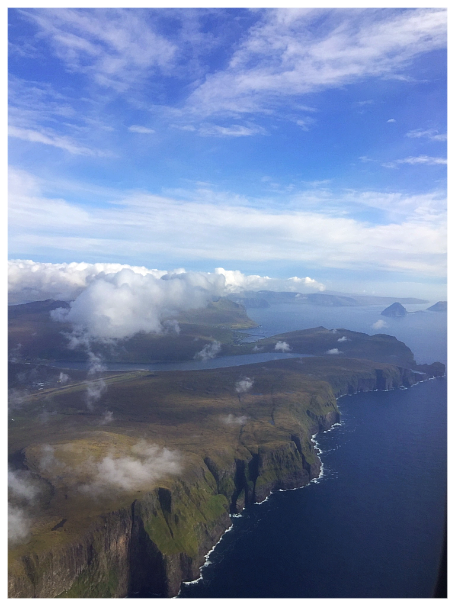 Now you might expect the
airport of the Faroes Islands to be the last redoubt of 1970's concrete utility
architecture. Huh, no chance. Even close to midnight the jaded traveller has to
be blown away by this tribute to Scandi-chic. Think of a concept Ikea store
where only the hippest designers may apply. Even the staff are cheerful. Maybe
the building does that to them. The guy at passport control positively beamed
as us, though having examined my passport went more delighted still by simply
uttering the acronym EU accompanied by a wry smile. You see the Faroes,
though 'a nation within the realm of Denmark', is not part of the European
Union. These are friends we might soon need. After all they have an awful
lot of fish, but more on that later.
Now you might expect the
airport of the Faroes Islands to be the last redoubt of 1970's concrete utility
architecture. Huh, no chance. Even close to midnight the jaded traveller has to
be blown away by this tribute to Scandi-chic. Think of a concept Ikea store
where only the hippest designers may apply. Even the staff are cheerful. Maybe
the building does that to them. The guy at passport control positively beamed
as us, though having examined my passport went more delighted still by simply
uttering the acronym EU accompanied by a wry smile. You see the Faroes,
though 'a nation within the realm of Denmark', is not part of the European
Union. These are friends we might soon need. After all they have an awful
lot of fish, but more on that later.
Heading for the exit,
amongst the gleaming aluminium and primary colour furniture, was a Duty Free
shop that dwarfed anything London airports have to offer. The four tills
were manned by yet more cheerful people, who smiled and waved, then looked
genuinely baffled as we walked on by. But we were the only people to do that.
Every single passenger piled into the shop for a frenzy of alcohol and
chocolate buying. Not a single person emerged into the baggage hall
without at least two bulging carrier bags. Half cases of wine, monster tubes of
Smarties, cases of beer, giant Quality Street tins. You are limited to 3kg of
chocolate according to the notices, though I suspect that maybe rather for your
own well-being that any economic rationale. But enough of the shopping habits
of the Faroese.
I think my biggest
misconception of the Faroes was that it was small; it may only have a
population of 48,000, plus 70,000 sheep but you cover a lot of ground across
the 18 islands that are either connected by bridges, sea tunnels or ferries,
the latter which the people treat as lightly as hop-on/hop-off buses. My hire
car, hardly an ancient wreck, had done 288,000 kilometres. So, be
prepared - you will do a lot of driving. Not that it is a hardship. The scenery
is stunning and the biggest traffic jam I encountered was a car in front of me
at a roundabout. However, they do drive fast. Really fast and that includes the
enormous refrigerated container freight lorries, the arteries of the economy.
I was here for the fish, but
the real fish that dominate these islands are of the deep sea or farmed
variety. The industry accounts for 95% of the economy. Just about every
fjord-like inlet has a fishing harbour, a cluster of houses overlooking a solid
stone breakwater, the wharf dominated by an industrial-scale fish processing
warehouse. Some harbours may be home to just a handful of small trawlers, but
there is a graduation in scale working up to the largest which is home to the
Russian fleet, each trawler the size of a continental car ferry. All these are
linked by that interminable merry-go-round of juggernauts.
 |
Fish, and that means all
fish, is food or currency as far as the Faroese are concerned. Catch and
release for anything of eatable size is not even a consideration. When I caught
my first sea trout the guide commented that it was 'of good eating size'.
And that is the thing here. The population fish an awful lot. As you drive
around just about every lake or estuary will have someone holding a rod
whatever the time of day, or night in the summer. Salmon, sea trout and brown
trout, essentially the only freshwater fish here, are hunted not just for the
pleasure of angling but to eat. Nobody minds that as a visitor you let your
catch go, but you are regarded as rather odd.
The fishing here is very
uncomplicated; a box of familiar wet flies and rods in the 5-7 wt. range.
Tippets are 3lb but everyone insists that the overall length of your
leader must be twice the length of your rod when fishing for brown trout in the
lakes; you can come down to 15ft (and up to 5lb) for sea trout. And that is
pretty well it. Cast as far as you can, stick to water with ripple and keep
varying your retrieve. If you see a fish move, cast directly at it. If one
misses your fly or you get a tug, got at it again like a demon. Don't dally in
one spot to long if it doesn't deliver. And always be ready for the
induced take as you lift off to cast again.
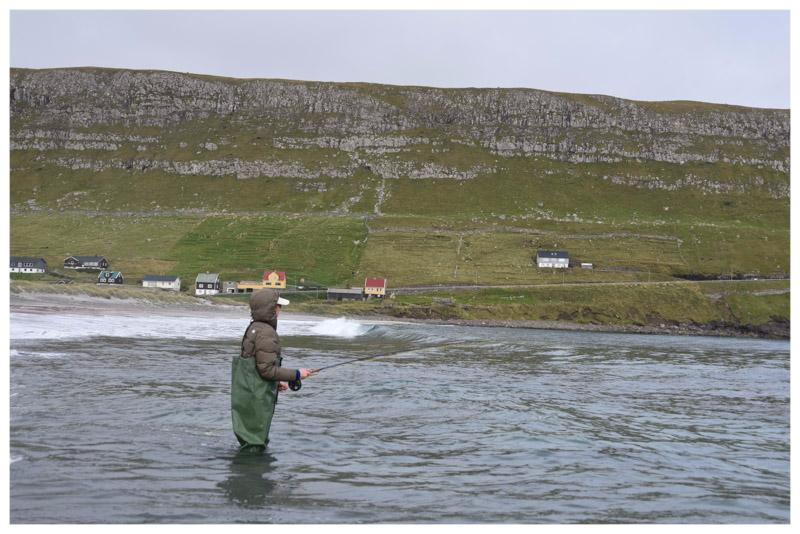
The fact is that the lakes
and estuaries are teeming with trout and sea trout. Of the latter on a clear,
still day I watched shoal of a least a hundred circling in water no more than
three feet deep for an hour, the size ranging from a pound to three pounds.
They took no account of anything I cast at them which was a lesson well learnt.
In the Faroes the worse the weather, the better the fishing. If you want
to splurge ahead of a trip to these rocky islands spend it all on good waders
and a jacket. It is not cold, but it is wet.
Other than that, I think you
might just enjoy it here.
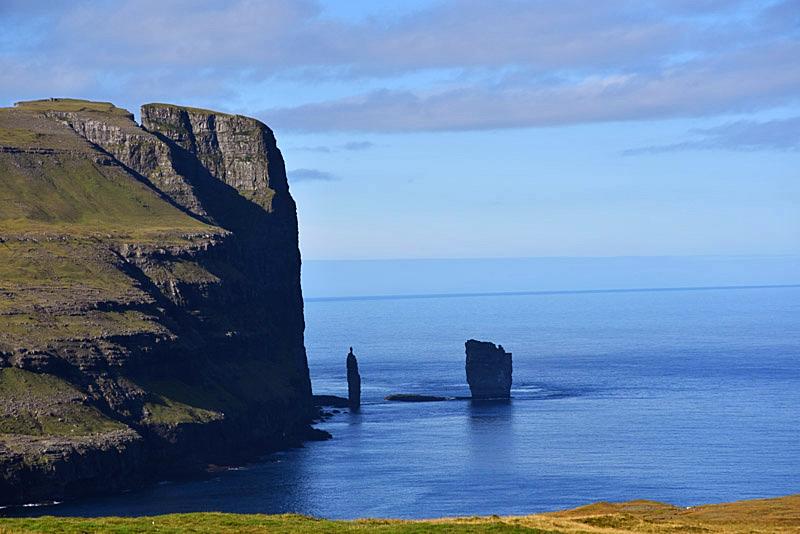
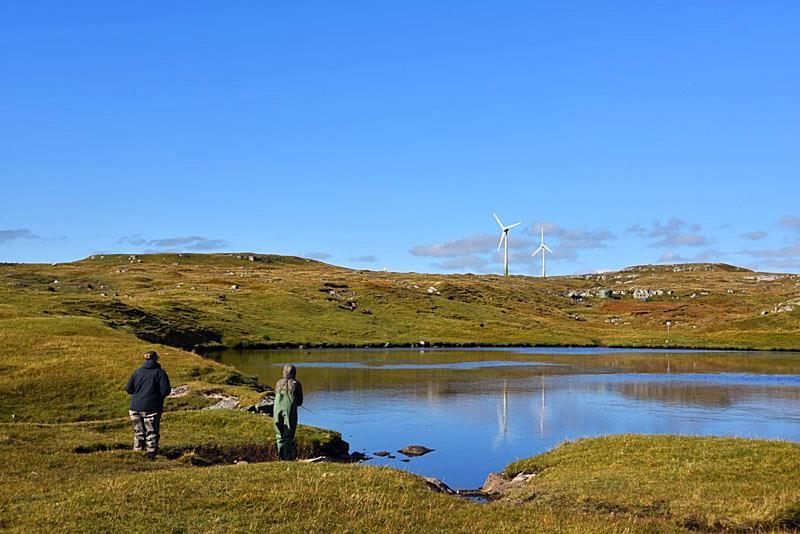
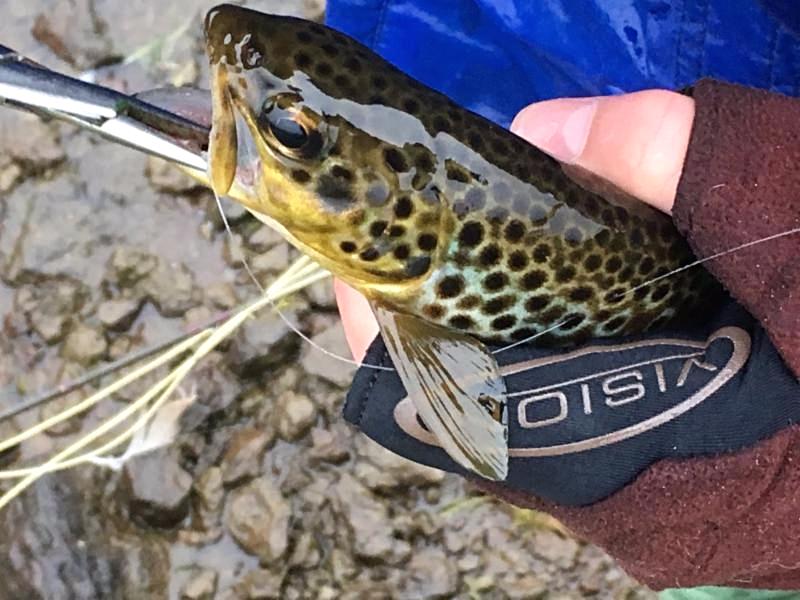
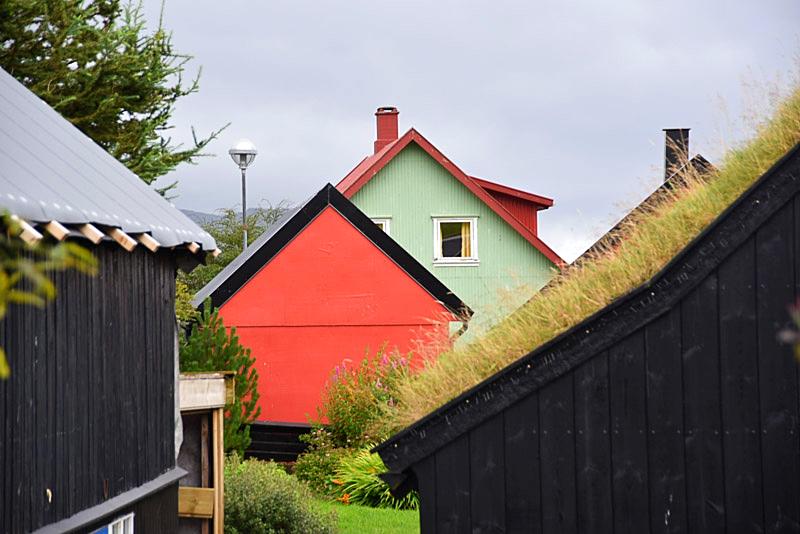
How to get there: www.atlantic.fo Where to stay: www.fishinglodge.eu Fishing guide: www.flyfishing.fo Car hire: www.unicar.fo
VOLE
SUCESS
You may
recall that we took part in a water vole release programme last summer on the
River Meon, which along with many other rivers, has seen a catastrophic decline
in the population. Well, I am happy to report, that after some additional
releases, the Meon valley now has a population from source to sea.

Elaina Whittaker-Slark who
has coordinated the project on behalf of the South Downs National Park
Authority tells me that the releasees at Exton Manor Farm (all 110 of them)
settled in, then dispersed as hoped. Better still they have begun breeding and
integrating with what was left of the natives.
It will take a few years to
know for sure whether the programme will have a lasting effect but voles are a
fecund bunch - 4-5 litters will all have an impact. The main killer of voles,
other than domestic cats, are mink but they are now absent from the Meon
catchment. Habitat is generally in fine shape; the Meon remains a largely
untouched chalkstream. Disease is probably the imponderable due to the lack of
research and definitive data.
Let's keep it crossed for
our furry pals.
DOUBLE
DELPHI
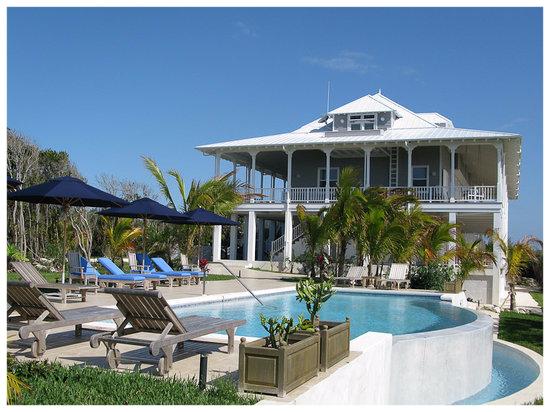
Thanks to everyone who sent
in answers to the Double Delphi quiz. The Q&A was:
1) In
which country is the Oracle of Delphi (photo)? Greece
2) What
does the word delphic mean? Obscure, Enigmatic or Ambiguous
3) On
which Caribbean island is Delphi Lodge? Abaco Island
Well done to Sebastian Aymes
who has a signed copy of Peter Mantle's book in the post to him today
QUIZ
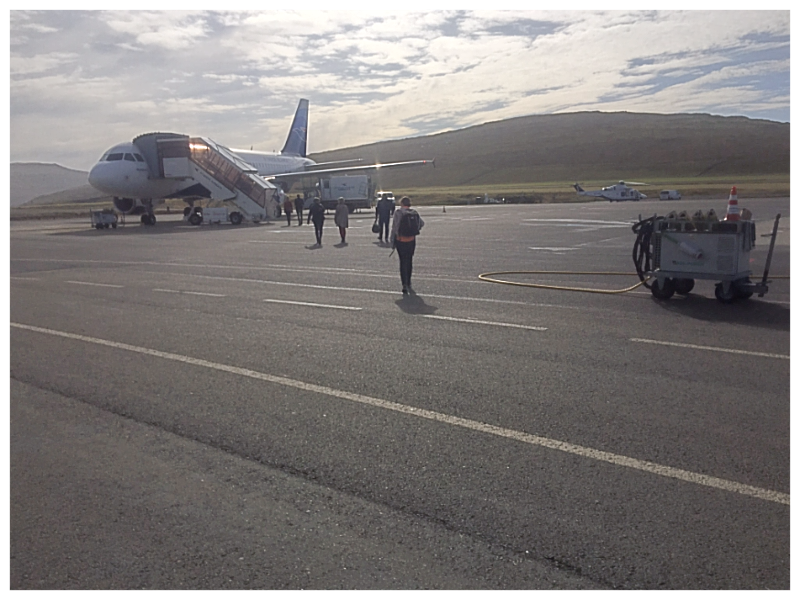
No prizes this week just
three questions loosely based on the Newsletter topics.
1)
How many
miles is it from London Stansted to Vágar? 558, 758 or 958 miles.
2)
The
origin of the word juggernaut is jagannath. From which country does the
word originate?
3)
In a
famous comic novel (and film) Urk, one of the central characters, spends a
great deal of time talking to water voles on the farm. What was the novel by
Stella Gibbons?
It is just for fun, with the
answers at the bottom of the page.
Have a good weekend.
Best wishes,
Simon Cooper simon@fishingbreaks.co.uk
Founder & Managing Director
Quiz answers:
1) 758 miles
2) India, after a God who allowed
his worshippers to be crushed beneath his carriage by way of sacrifice.
3) Cold Comfort Farm.

 For a variety of family reasons I made the decision to forgo the 2017 Jackson Hole One Fly soon after the last cast of last year's competition. Reasons that seemed so pressing and important 12 months ago are either less so now or completely redundant, overtaken by events. Essentially I had a hole in my calendar, so what better way to fill it than with a fishing trip. But where?
For a variety of family reasons I made the decision to forgo the 2017 Jackson Hole One Fly soon after the last cast of last year's competition. Reasons that seemed so pressing and important 12 months ago are either less so now or completely redundant, overtaken by events. Essentially I had a hole in my calendar, so what better way to fill it than with a fishing trip. But where?
 Now I was far too impoverished to stay at Peter's grand establishment, but I could afford the occasional day ticket. I do recall an impressive array of Mercedes cars in the drive and the continental types who seemed to be Peter's bread and butter. They favoured the full British tweed outfit; as the Queen would say, they look more English than us. I never quite understood that look for holiday attire, though to be fair they equally failed to understand my penchant for scruffy Levis and collar-frayed shirts.
Now I was far too impoverished to stay at Peter's grand establishment, but I could afford the occasional day ticket. I do recall an impressive array of Mercedes cars in the drive and the continental types who seemed to be Peter's bread and butter. They favoured the full British tweed outfit; as the Queen would say, they look more English than us. I never quite understood that look for holiday attire, though to be fair they equally failed to understand my penchant for scruffy Levis and collar-frayed shirts.
 OUR OLDEST CLIENT?
OUR OLDEST CLIENT?